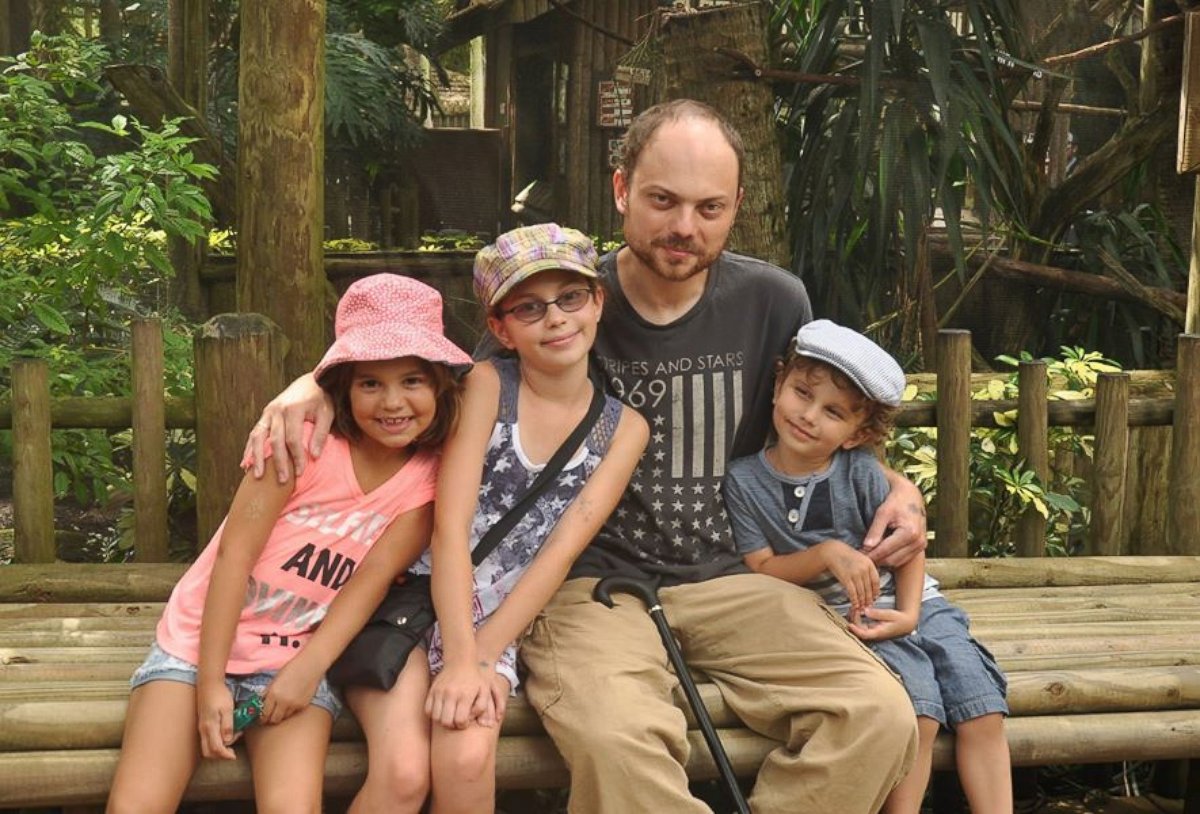'Poisoned' Russian opposition activist leaves hospital for treatment abroad
His lawyer would not say to where the activist was being transferred.
MOSCOW -- A well-known Russian opposition activist who was left in a critical condition this month after an apparent poisoning has now left Russia for treatment abroad, his lawyer said.
The case of Vladimir Kara-Murza attracted international attention and condemnation on Capitol Hill earlier this month when he was rushed to the hospital – poisoned, his doctors said, with an unknown substance.
It was the second time in two years that Kara-Murza – a veteran critic of Russian President Vladimir Putin – has been poisoned, and his colleagues have suggested it must be linked to his activism.
This time Kara-Murza spent a week in critical condition, on life support and kept in an artificial coma as doctors sought to clean his bloodstream of whatever could be poisoning him. Last week, he regained consciousness and on Sunday, Kara-Murza’s lawyer, Vadim Prokhorov, said that the activist was now being transferred abroad for rehabilitation.
In a statement posted on Facebook, Prokhorov did not say where Kara-Murza was being transferred to, only saying it was “abroad."
As during the first time, Kara-Murza’s doctors have been unable to say what he had been poisoned with or even to find any trace of it. The diagnosis currently is simply “acute intoxication by an unknown substance”, his wife, Evgenia Kara-Murza, said.
Samples of his skin, nails and hair have been sent for testing by toxicology laboratories abroad, she said. Previous tests two years ago were unable to identify the poison, though a French lab found traces of heavy metals in his bloodstream.
The motive for the poisoning is also murky. Evgenia Kara-Murza believes it must be linked to her husband’s activism, but does not know what it could be specifically.
But in Sunday’s statement, Kara-Murza’s lawyer said he had pledged that he would not stop his opposition work despite the poisoning: “He definitely will continue to do what he has done all these last years: activity directed towards the restoration of democracy in Russia.”

The case had attracted particular attention in the U.S. because it happened to coincide with a Fox News Super Bowl interview with president Donald Trump in which he indicated he was unphased by the idea that Putin was “a killer”.
Asked by Fox News’ Bill O’Reilly why he respected Putin since the Russian president was “a killer”, Trump replied: “We have a lot of killers too. What you think our country is so innocent.”
Those comments prompted angry criticisms from some Democrats and Republicans who said Trump was equating the U.S. with the authoritarian tactics used under Putin.
Sen. John McCain took to the house floor on Feb. 7 to condemn Vladimir Kara-Murza's poisoning and implicitly President Trump's comments.
"Vladimir knew there was no moral equivalence between the United States and Putin’s Russia," McCain said of Vladimir Kara-Murza. "And anyone who would make such a suggestion maligns the character of our great nation and does a disservice to all those whose blood is on Putin’s hands.”
Some have suggested that Kara-Murza’s poisoning could be linked to his involvement in a campaign to promote American sanctions legislation. He played a significant role in lobbying Congress to pass the Magnitsky Act, a blacklist that targets Russian officials involved in the murder and its cover-up of Sergei Magnitsky, a lawyer who was killed by Russian police after he uncovered a huge tax fraud scheme linked to the top levels of the Russian state.
Kara-Murza had appeared repeatedly before Congress urging it to pass the legislation that was later broadened to include all human rights abusers in Russia.
On Sunday, Kara-Murza’s lawyer said that his work around the Magnitsky Act was considered one of potential cause of the poisoning. In his statement, the lawyer said Kara-Murza would continue to work on the Magnitsky Act.




